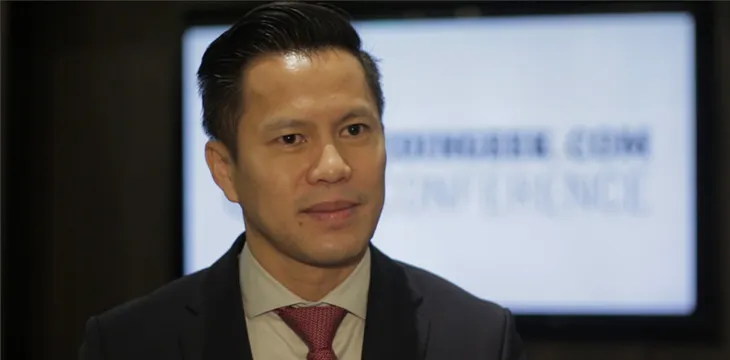|
Getting your Trinity Audio player ready...
|
Nguyen says there’s work to do, but that the BSP is doing right in creating sensible regulation to improve consumer confidence.
In an interview with Bloomberg TV Philippines, nChain CEO Jimmy Nguyen gave insights on the blockchain and cryptocurrency development in the country and how it can impact overseas remittances. According to Nguyen, the country is in the early stages of cryptocurrency adoption, but is on the right path.
“I think the Philippines is in the early stages of adopting cryptocurrencies generally—and blockchain technology,” Nguyen said, adding however that there aren’t a lot of cryptocurrency exchanges in the country to help citizens participate in the new economy.
“I think it is headed in the right direction. This is the perfect market for virtual currency.”
The Philippine economy benefits highly from overseas foreign workers (OFWs) sending money back to their families in the country. Last year, the World Bank estimated that OFW remittances to the Philippines would hit almost $33 billion, bumping the archipelago up as the third biggest remittance-receiving country behind India and China. Nguyen, says the country’s remittance activities can be made better.
“Remittance and wire transfers could be much cheaper and more efficient. And that’s important to the Philippines.” Nguyen, whose company nChain is helping develop Bitcoin Cash (BCH) for cheap and fast transactions, went on to explain the value of BCH in comparison to BTC for daily transactions due to its usability, despite the former only having existed for only eight months.
As was the global trend, several scammers took advantage of the advent of blockchain technology to pull off Ponzi schemes and other cons, prompting the country’s central bank, Bangko Sentral ng Pilipinas (BSP) and the SEC to issue warnings to the public, along with a set of guidelines for businesses planning to open up exchanges in the country. The BSP has also been in talks with some industry players in the Philippines to help gain better understanding of the technology.
Nguyen commends the BSP’s openness despite the risks.
“I know the BSP issued some guidelines recently to warn people to be careful about investing in virtual currency. In addition to recognizing the risks, it recognized the value for a country like the Philippines.”
He adds that regulation would actually be good for cryptocurrencies. “I think, first of all, it’s a good step for the government to begin sensible regulations for virtual currencies. Some people in the Bitcoin world don’t like that. I, particularly because I’m a former lawyer, think regulation can be a good thing and create more consumer confidence,” Nguyen said.
In terms of the PHP 150 million ($2.9 million) minimum capital requirement imposed by the government on digital wallet operators, Nguyen thinks it’s quite low but “it’s a start.”
“That capital requirement is fairly low, but we are dealing with people’s money. I think it’s important to require the wallet operators and the exchange operators to have backing so that we avoid situations like in Japan—with the Mt Gox hack a number of years ago and a lot of people lost their bitcoin and didn’t have recourse against the company,” Nguyen explained.
“So I think that’s probably a start and over time, as the exchanges and wallets get bigger, they’ll probably raise the capital requirement. I think that’s a sensible step,” he added.
Watch the interview below:

 07-04-2025
07-04-2025 





